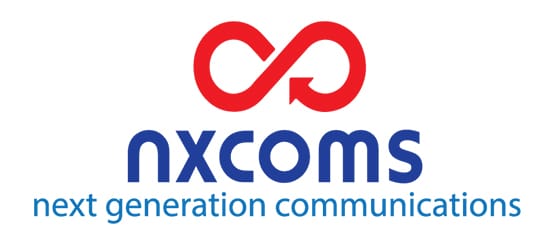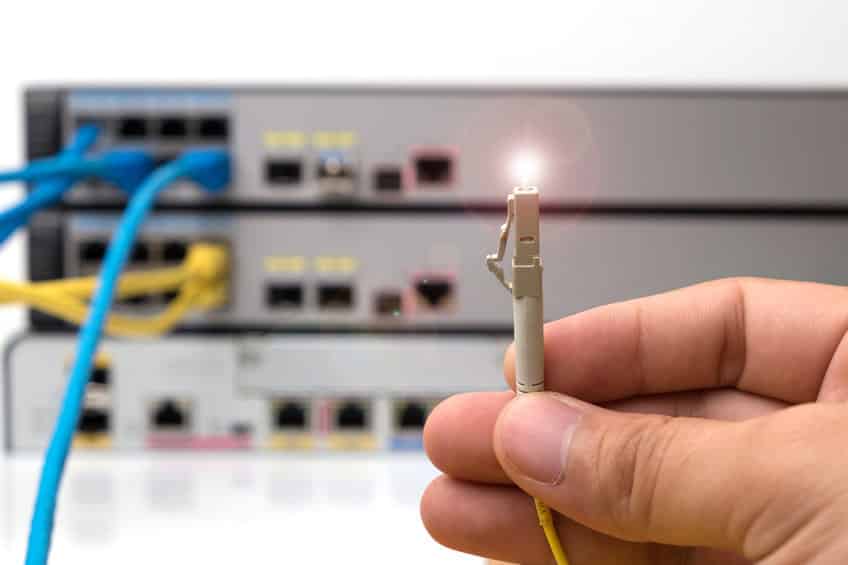Do you know your broadband from your fibre optic? What does fibre optic really mean, and what’s it got to do with broadband anyway?
We hear the terms all the time, don’t we? Most of us have a vague understanding of what’s being said. We catch the gist. It’s enough to get us through. Just.
Most often, ‘fibre optic’ and ‘broadband’ are used interchangeably. They’re one and the same thing, aren’t they?
Not quite. If you’re still unsure about the comparison of fibre optic vs broadband, let’s clean up the confusion…
Fibre Optic Vs Broadband: What Is Broadband?
Broadband is defined as ‘the transmission of wide bandwidth data over a high-speed internet connection’.
So that’s cleared it all up for you, right?
Didn’t think so; let’s try again…
Broadband is your ability to access the internet from your devices. Okay, we’re getting a little closer.
Third time lucky?
Basically, broadband is the connection you have to the internet. Hurrah!
But there are different types of broadband, and that’s where the confusion creeps in. How your business connects to the internet can vary, from copper networks, satellite, wireless and fibre.
Fibre Optic Vs Broadband: What Is Fibre Optic?
With this in mind, the ‘fibre optic vs broadband’ comparison is really a false one.
So what’s all this mention of fibre optic? It’s the latest and greatest internet connection around. Thin, flexible fibres with a glass core are being laid to replace the outdated copper cable network, which happens to be more than a century old – yep — definitely time for that brilliant but worn-out system to rest.
In contrast, fibre optic cables transmit all your business communications and internet happenings via light signals along the glass fibre. Light travels fast, right? So too, does fibre optic broadband.
Not only are fibre optic cables faster, but they’re also more reliable and greener too. Impressive.
Tell you more? Oh, okay then…
Fibre Optic Vs Broadband: What’s The Difference?
Up until recently, broadband has connected your business to the internet via copper cables. A network of underground cables that were originally designed for telephone calls back in 1877. We hear you, that’s really old.
How does that even work? Believe it or not, all your business communications and connections move along the copper wires as electrical pulses. But the longer the cables are, the more likely your data will get tired and lost. The result? Poor, slow internet connection. Especially if you’re working in a beautiful, but out-in-the-sticks spot.
So what’s different about fibre optic cables? They’re so much snazzier. Built for the digital age. They’re made of glass core fibres only marginally thicker than a strand of hair, yet have impressive strength. Told you they were snazzy.
And the data transfer? Not by electrical pulses that go ‘poof’ when they have to travel too far, that’s for sure. Fibre optic cables use light. Yeah, it’s a whole Christmas display happening discreetly under our feet. Cool, hey?
And just to let fibre optic show off, let’s look at the stats. Copper cables are capable of getting broadband speeds up to 80Mbps. Fibre optic broadband? They boast broadband speeds up to 1000Mbps. Woah.
Mbps mean nothing to you? Doesn’t matter. We know you can appreciate the whopping difference in those numbers and how much faster full fibre optic broadband is compared to copper.
Hasn’t fibre optic been around for ages, you ask? What’s so special about this latest version? The truth is, the big brands have had you fooled, yep, sorry about that. What once was called ‘fibre optic broadband’ was really a marketing ploy…the ‘fibre optic’ never actually ran all the way to your home or business, just to the green cabinet on the street. Oooh, those devils!
Fibre Optic Vs Broadband: The Big Switch-Off
What’s that now? A switch-off?
That’s right. In 2025, copper cable internet will be turned off for good. We’re finally saying thank you and goodbye to the copper cable era. So in the battle of fibre optic vs broadband provided by copper, one of the contestants will soon be out of the ring altogether.
What does it mean for you and your business? It’s a big deal. That’s why we’re telling you about it. And we’re gonna keep mentioning it.
If your business internet connection happens via copper cables (if you’re not on fibre, this is you), come 2025, your business will have to operate without internet.
Don’t fancy going back to business operations of the 1970s? What not up for, cash-only, clunky machines and only snail mail or leaflet dropping to let people know you exist? Impossible to carry on, you wail? Then you’d better hop to it and sort out an alternative way to keep your biz blooming.
To keep you on track with the ‘fibre optic vs broadband’ showdown, what’s the difference? All fibre optic is broadband, but not all broadband is full fibre optic. Broadband is your internet connection. Fibre optic is a (superior) type of broadband.
If your business isn’t yet connected with full fibre optic broadband, then it probably should be.
Want to know more about why your business broadband is so bad and how to fix it? Check out our recent post with all the info you need right here.

